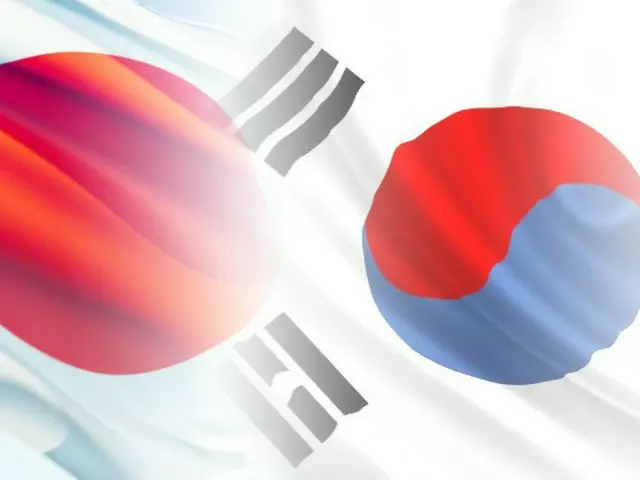The Korean government's "Foundation for Supporting Victims of Forced Mobilization by the Japanese Empire" is shouldering the compensation payments of the defendant companies that lost the lawsuit and is in the process of making third-party payments to the plaintiffs.
According to the report, Yang was paid the compensation amount and interest on the late payment on the 23rd of last month, and Lee was paid the amount on the 30th of the same month.
All 13 survivors have accepted the South Korean government's solution. Meanwhile, the "Citizens' Association for Forced Mobilization by Japanese Imperial Army," which has supported Yang, says that Yang is currently suffering from dementia and is in the process of "recognizing the
"His mental capacity is weak," he said, and "I wonder if Yang's decision to accept the judgment money was entirely of his own volition under these circumstances."
He said he was unaware that the father had accepted the government's solution, and pointed out that the father was not in a state to express normal will and that there were problems with the procedures.
In the former forced labor lawsuit, the Supreme Court ordered Mitsubishi Heavy Industries and Nippon Steel (formerly Nippon Steel & Sumitomo Metal), the employers, to pay compensation in October 2018.
However, Japan takes the position that the issue of wartime compensation was settled by the 1965 Japan-Korea Claims Agreement, and for this reason the two defendants refused to fulfill their obligations.
The government has been working on the sale of assets to use them for compensation. The former forced labor lawsuit issue is the biggest concern between Japan and South Korea, and time has passed without any sign of a solution.
However, the situation changed with the inauguration of the Yun Seok-yeol administration in South Korea. President Yoon has shown a desire to improve Japan-South Korea relations since he was a presidential candidate, and regarding the former forced labor lawsuit issue,
Soon after its inauguration, the government stepped up efforts to find a solution, including setting up a joint public-private council to find a solution. Then, in March of last year, the South Korean government announced a "solution" to the problem.
The contents of the document are that the Foundation for Supporting Victims of Forced Mobilization by the Japanese Empire, which is an organization under the Korean government that supports former forced laborers, will pay compensation, including interest on delayed payments, on behalf of the defendants Nippon Steel and Mitsubishi Heavy Industries, which were ordered to pay compensation to former forced laborers.
The company will pay the plaintiffs an amount equivalent to the compensation. It also said it will do the same for the ongoing lawsuits of the same kind if the plaintiffs' victories are confirmed.
When the South Korean government announced the solution, President Yoon said, "Until now, the government has taken the position of the victim.
"This is the result of seeking a way to respect the common interests and future development of both Korea and Japan while respecting the differences between the two countries," he emphasized. Of the 15 people who won the lawsuit, 11 who are still alive or are bereaved accepted the settlement shortly after it was presented.
They expressed their willingness to accept the payment and were each paid 200-300 million won (approximately 22-32 million yen) in judgment money and late interest. However, Yang, Lee and the other four refused to accept the payment.
When the South Korean government proposed the solution, it said, "There are other people who made mistakes and others who should apologize, so we should not solve the problem with (third-party compensation). We will not accept such money even if we starve to death.
They demanded an apology and compensation from Japan. Among the survivors, only Yang and Lee have opposed the settlement.
However, according to the Ministry of Foreign Affairs and other sources, they have recently agreed to accept both men and received the amount of compensation and interest on the delayed payment. With this, all survivors have agreed to the South Korean government's settlement.
However, the families of the remaining two plaintiffs are still refusing to accept the settlement. Meanwhile, the reasons why Yang and Lee accepted the settlement are unclear.
Ng has been in and out of hospital since May last year, and was later diagnosed with dementia. He is currently hospitalized in a hospital in Gwangju, southwest of the country.
After it became clear that Yang had accepted the decision, the Association of Citizens Mobilized by Japanese Imperialism, which had supported Yang, asked the group last month, "Was this a decision of Yang's own volition? What circumstances led to this decision?"
"I don't know how they've reached a conclusion," he said, expressing his disbelief. Ms. Lee's eldest son also said, "I suddenly learned through the news that the (substantial amount of) compensation had been paid."
According to his eldest son, some of his siblings had been in contact with the foundation and were in discussion about accepting a settlement, but he himself had no intention of accepting one.
The two men's successive receipt of compensation amounts is expected to have an impact on the plaintiffs in similar lawsuits currently underway.
According to the report, since the Supreme Court ruling in 2018, there have been about 80 similar lawsuits involving former forced laborers, with the number of plaintiffs reaching about 1,200. The South Korean government estimates that 200 to 300 of these plaintiffs have won.
It is possible that this will happen, but there are also concerns that the foundation may run out of funds as it continues to make payments.
2024/11/06 15:03 KST
Copyrights(C)wowkorea.jp 5

